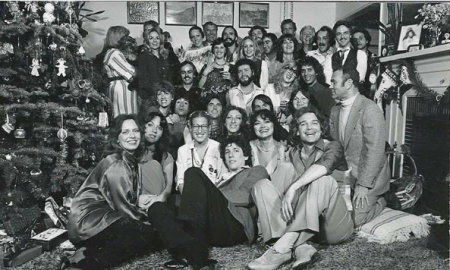The Washington Post
HBO’s ”˜Vito’: How a movie buff found his own sense of outrage
By Hank Stuever, Sunday, July 22, 6:49 PM
“The things that you think are going to take 10 years take 100 years,” said gay rights activist and film historian Vito Russo. He said it to a camera, with some measure of lament, during an interview that took place more than two decades ago, but feels as if it happened a thousand years ago.
Russo, who died of AIDS-related complications in 1990 at 44, never got to see this fast-forwarded age of gay rights. In just the past decade, same-sex couples gained marriage rights in several states (and the District) and, in the past week, a Facebook petition frenzy soured appetites for Chick-fil-A, whose religious owner has donated a small fortune to the anti-gay marriage effort. You’d have to wonder what Russo would have made of all this – would he see satisfying social progress (Anderson Cooper! “RuPaul’s Drag Race!”) or would he still be in the thick of a bitter fight?
Jeffrey Schwarz’s moving documentary, “Vito,” airing on HBO on Monday night, is a portrait of the kind of hot-and-bothered activist who seems to exist less and less in this era of black-tie fundraisers and “Modern Family” quasi-acceptance.
Russo, a New York native who was born outspoken, overcame a bullied childhood and found refuge at silver-screen matinees. At the time of the Stonewall riots, in 1969, he was a sexually voracious young man with a determination to change the world.
“Vito” nearly parallels Russo’s life and times with that of the early gay-rights movement. At the bawdy St. Mark’s baths in the 1970s (where Russo befriended house chanteuse Bette Midler), Russo began hosting movie nights for the clientele, but rather than porn, he showed classics from the 1930s and ’40s.
The audience discovered “that we all laughed at the same parts,” as one participant recalls for Schwarz’s documentary. Russo found his life’s calling in this shared sense of camp and double entendre, brought vividly to life by the likes of Joan Crawford, Bette Davis and Judy Garland. He was the original “friend of Dorothy” and spent the better part of a decade diving deeper into film archives to pinpoint and chronicle the history of gay characters and themes in the movies – subliminal or otherwise.
“The Celluloid Closet,” Russo’s 1981 book, became an important work of scholarship and a bestseller, showing how Hollywood had coyly stereotyped homosexuals all along. Russo also began hosting a weekly gay-themed talk show on a New York cable television station, becoming a sort of primordial version of Bravo’s Andy Cohen (only with a higher IQ). His interest in film history, popular culture and the burgeoning gay-rights movement were perfectly intertwined.
As such, the first half of “Vito” plays almost like a 45-minute “It Gets Better” ad, as Russo embraces his identity, tastes success and is adored by his family and friends. “Vito” is lush with fascinating archival interviews and footage, including scenes from a 1973 pride rally at which a young Russo struggles to keep the peace among a rowdy crowd of feminist lesbians and militant drag queens.
Then the heartbreak of AIDS intrudes in the ’80s. Russo loses the love of his life, watches his own health decline and joins Larry Kramer and others in a desperate and outraged cry for research dollars and government action. Here, “Vito” exchanges its subtle storytelling technique for a sobering session of gay-rights homework, resembling a recent raft of documentaries about the early years of the AIDS crisis. (Even some of the stock footage is the same as that seen recently on PBS’s “We Were Here” and other projects.)
“Vito,” like most films about gay history, becomes obsessed with the idea that younger generations live blissfully unaware of the struggles of yesteryear, which isn’t always true. The tone of the film shifts from elegiac to stern, as Schwarz looks for a landing. It ends, of course, with Russo’s death and a bunch of people wishing like crazy that he was still here, fighting the fight and taking his friends to the movies.
Vito
(95 minutes) airs Monday at 9 p.m. on HBO.
Related articles
- Out Now: Vito (bootlegbetty.com)
- Outfest: ‘VITO’ Clips, Interview with Director Jeffrey Schwarz (bilerico.com)
- Films: The Best Of Outfest 2012 Preview (bootlegbetty.com)








